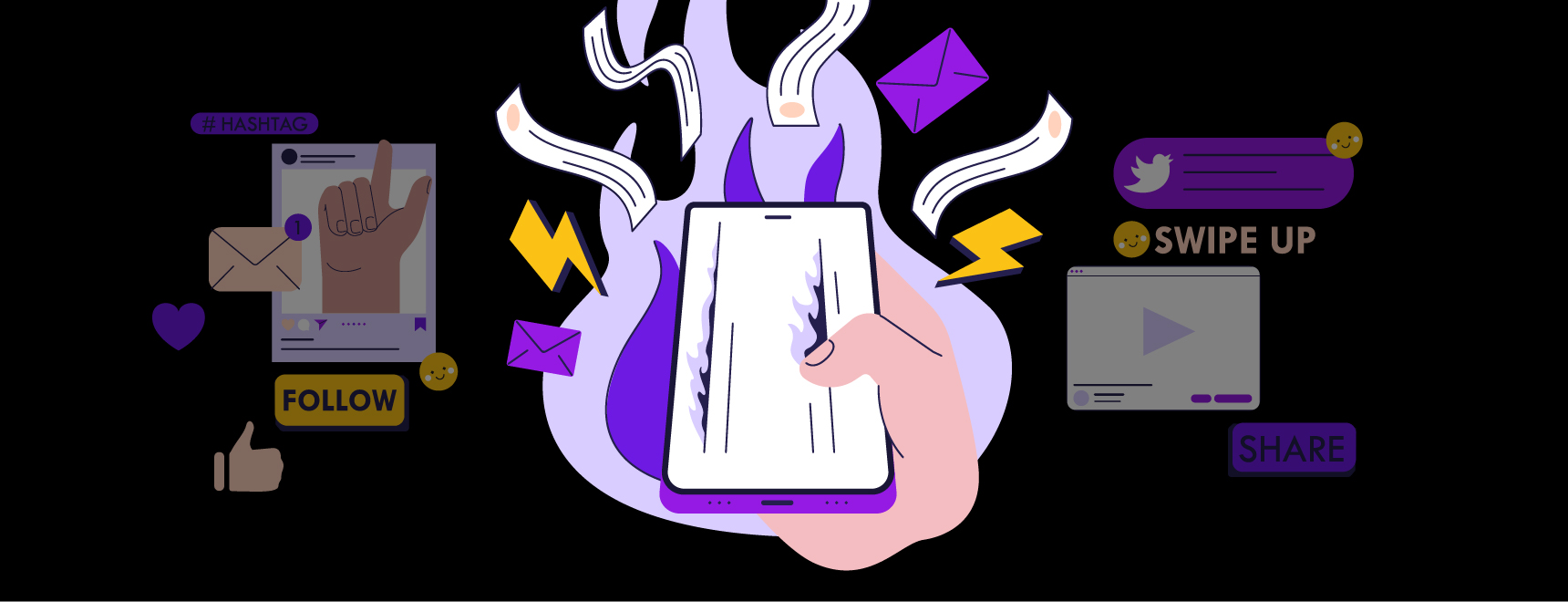How social media can help create positive change.
Doom is synonymous with unavoidable ill fortune. As in, oh no, I didn’t start my homework until the last minute. I’m doomed. On social media, it’s called “doomscrolling” because, apparently, nothing good can be accomplished by compulsively scrolling through negative news or distressing content. Or can it?
We scroll to escape the present and, in doing so, often discover what’s trending. Activism doesn’t have time to wait until the 5 o’clock news. Social media provides real-time information on the issues of the day. It can supply all the inspiration needed to take action, oftentimes with minimal effort. In this way, social media possesses incredible potential for driving positive change in the world, even when we’re supposedly just “killing” time. Here’s a few other ways we can use it for the public good that make me casually optimistic.
Spreading Awareness
Social media can amplify awareness for important issues like environmental conservation, social justice, and even mental health — a primary concern with regards to doomscrolling. It allows individuals and organizations to educate the public both efficiently and effectively. The most passionate activists can reach a global audience in seconds.
YouTubers MrBeast and Mark Rober, for example, successfully planted more than 20 million trees around the world in less than three years. Through their #TeamTrees charity campaign, hundreds of content-creators produced thousands of YouTube videos with a simple call-to-action: give $1 to plant one tree. “We took over the internet to plant 20 million trees,” said MrBeast. “And now 20 million trees are in the ground! This is more than just hashtag activism.”
Mobilizing Communities
Whether it's used for organizing disaster relief, crowdfunding for medical emergencies, or coordinating protests for social justice, social media platforms can bring people together for collective action. While social media has been criticized for “creating loose connections,” many of those connections aren’t possible without platforms like Facebook, Twitter, or Instagram. These tools help bridge cultural barriers and inspire solidarity.
On Wednesday, Turkish authorities detained the mayor of Istanbul, Ekrem İmamoğlu, just days before he was due to be selected as a presidential candidate. İmamoğlu is viewed by many as current President Recep Tayyip Erdogan's strongest political rival. Since then, police have arrested dozens of people for “provocative” social media posts. The response? Protests have erupted outside Istanbul's city hall and across university campuses, despite a four-day ban on demonstrations imposed by the government. Such a quick mobilization of concerned citizens would have been virtually impossible without social media to help spread the word.
Education and Inspiration
With an endless supply of informative posts, live streams, and interactive content, social media is a hub for learning. It provides access to free educational resources, discussions, and tutorials that can empower us with knowledge and a new set of skills. The next time you find yourself excessively scrolling, don’t feel so down. Doom isn’t inevitable. Perhaps you’re able to educate yourself, spread awareness, or find that spark of inspiration needed to take action. Is Tweeting (X-ing?) going to solve any real-world problems? Maybe, maybe not. But it’s always worth standing up for what you believe in. If we can overcome the negativity surrounding social media, I'm hopeful we can still use it to help make the world a better place.
References
Eusebio, L. (2022, October 25). Promise kept: Mrbeast, Mark Rober & #teamtrees campaign successfully plant 20 million trees. Global Press Release & Newswire Distribution Services. https://www.businesswire.com/news/home/20221025005474/en/Promise-Kept-MrBeast-Mark-Rober-TeamTrees-Campaign-Successfully-Plant-20-Million-Trees
Gladwell, M. (2010, September 27). Small Change. The New Yorker. https://www.newyorker.com/magazine/2010/10/04/small-change-malcolm-gladwell
Shirky, C. (2009, June). How social media can make history. Clay Shirky: How social media can make history | TED Talk. https://www.ted.com/talks/clay_shirky_how_social_media_can_make_history
Wither, E. (2025, March 21). Second night of protest breaks out in Istanbul despite ban. BBC News. https://www.bbc.com/news/articles/cpv43dd3vlgo

No Comments.